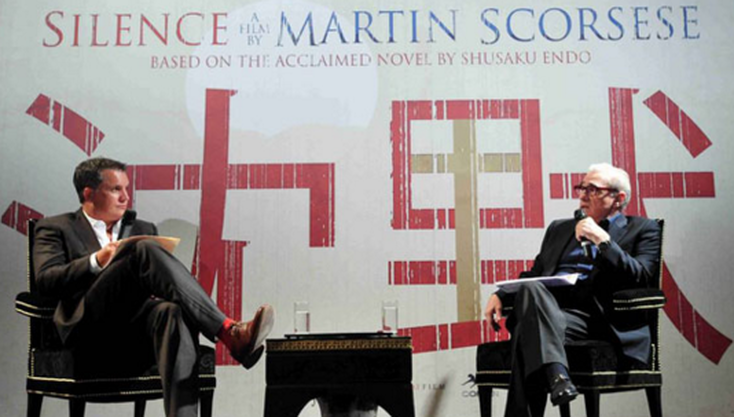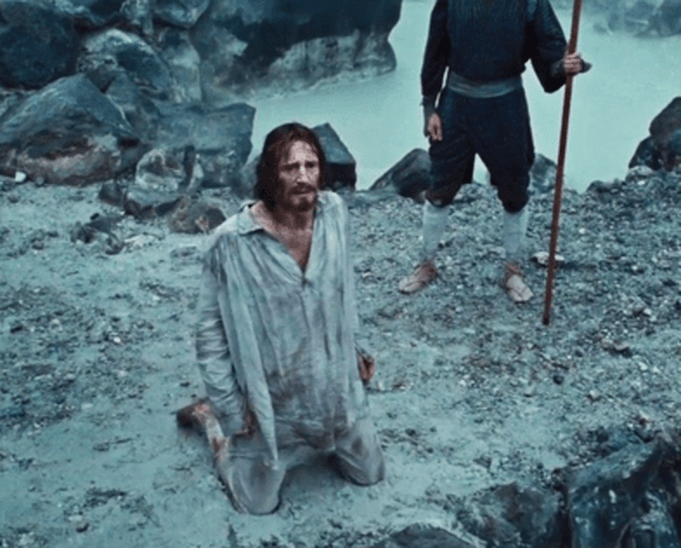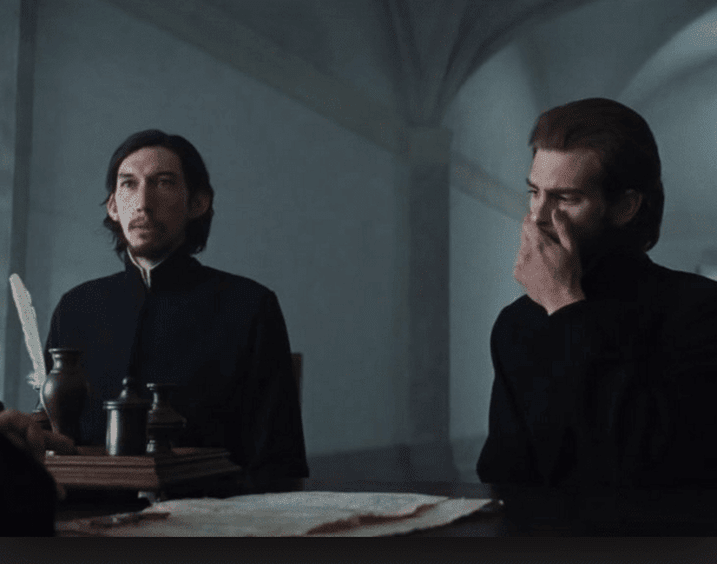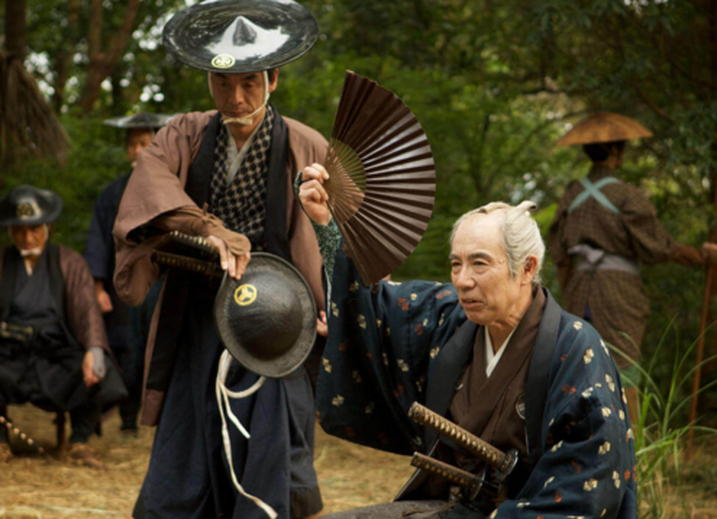|
Rating: R, Time: 2hr 41m, Director: Martin Scorcese, Cast on IMDb What did you think of the beginning? Unfortunately, I missed about 10 minutes of the beginning with the entrance of Padre Ferreira, played by Liam Neeson. I think there was defintiely some key elements missed as the audience is introduced to a period in Japan's history, where the tolerance of Christian missionaries has reversed to intolerance and persecution of any Christian besides the Jesuits fathers, who received the worst punishment of all. Ferreira is forced to deny his faith in order to stop the persecution of Christians he has run into contact with. This comes as a shock to the Jesuits he trained back in Portugal under. How do you take of the separation of the two fathers? The split up of Padre Rodrigues, played by Andrew Garfield and Padre Garupe, played by Adam Driver leads to their own unravelling as their wills are put to the test by betrayal and capture. They both get to witness again and again the persecution of their own flocks for merely wanting to believe. Why would an atheist want to see this movie? Yes, interesting question. I love the idea of people believing something so dear that is really just founded on pure faith vs. proof. The real challenge is once the padres escape from their pampered world of the Jesuits in the heart of Europe, they really start to challenge whether they believe themselves and how to survive in such a world. Considering that Christianity prosecuted the same type of Inquisition at the same time against other faiths kind of turns the notion on its head. The European Inquisition lasted from 1250 to 1800s and was always challenging recently converted Muslims and Jews whether they were true Christians. This was one of the longest lasting religious torture of all time resulting in about 44,000 cases in Europe and in conquered Latin America from Mexico to the tip of Chile. This movie shows how a majority in a population can be fearful of change not controlled by the masters of the society. Keep in mind that leading up to this story in the 1500s, Japan had many civil wars that resulted in a Daimyo rule of all Japan and eventual Peace. The resulting Peace and Order was reinforced by rejecting these new Portuguese missionaries that arrived in 1543 that had led to 300,000 converts by the time of the Japanese Inquisition against the missionaries begins. What did you think of the primary villain Inquisitor Inuoue?
Every story needs a great villain. He is merely a tool of the Daimyo Toyotomi Hideyoshi, who had unified all of Japan under one Shogun. Toyotomi believed he needed to eradicate Christianity starting in Nagasaki, since some Samarui had converted and others not. By having a uniform belief system, he believed centralized rule under one ruler would endure. Besides Coelho, the leader of the Jesuits, actually tried to recruit the Christian samarui to resist this central rule, so the threat by the Jesuits went beyond merely religious indoctrination. Inoue, played by Issei Ogata, is enforcing the new rule of Japan and getting rid of the reasons for the warring sects in Japan. I think he really captures the culture of Japan at this time. The best part of his character is his use of dialogue with his captured missionaries to mess with their minds via verbal battles of philosphy and subtle torture, like torturing others so you stop converting. So the padres start to learn how sticking to their philosophy is really just going to end up in more torture due to this swift and deadly enforcement. Was the film really long? How did you survive an almost 3 hour movie? Yes, I was thinking going in that I would get restless and uncomfortable bladder, so I purposeless came in when I thought the film would begin, hence missing 10 minutes of film and drinking no soda at all. With this massive length, I would recommend the same unless at home with the pause button. The seats in the theatre weren't that comfortable, so I was definitely shifting back and forth a bit. The strange thing is the movie doesn't seem to drag at all in its purpose and goal. The ending feels so Japanese in a way with a proper Buddhist Zen quality and amazing set contrasts. Scorcese is leaving a legacy with this film I think and it will be watched for years to come I think. Even the Pope gave Martin a private meeting based on the film.
1 Comment
Please share via Facebook or Twitter!
|




 RSS Feed
RSS Feed 